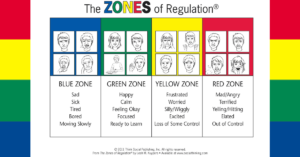Wellbeing
D Khan
Wellbeing Lead
At Chapel End Junior Academy Good mental health and wellbeing are are key components of a healthy life, for both children and adults. We want our pupils, their families and our staff team to thrive: to feel confident in themselves and have positive self-esteem; to recognise and express a range of emotions; to build and maintain good relationships with others; to feel engaged with the world around them; and to successfully overcome challenges when they arise.
You will find information below about how we develop this in school as well as links and resources for more help and information.
Mental Health and Wellbeing Support Services
Schools and Families Advice Line (SFAL)
The ‘Schools and Families Advice Line’ (SFAL) is a new service established to provide emotional wellbeing advice and early help to children and young people, school staff and families during the COVID-19 pandemic.
It can be really worrying when you, or someone you know is going through a difficult time. If you feel this service could help, please call our Single Point of Access (SPA) who will take your details before passing them onto our call back service. Contact telephone 0300 777 0707 email hpft.spa@nhs.net
CAMHS (Children and Adolescent Mental Health Services)
The service provides interventions for moderate/severe emotional and behavioural difficulties in children and adolescents. The teams also offer specialist interventions for other mental health difficulties including anorexia and schizophrenia. Parents can refer their child on his or her behalf. More information is available on their website or parents can call them on 0300 777 0707.
Committed to improving children's wellbeing and mental health. Discover information, advice & support for young people affected by mental health. There is a free and confidential online and telephone support service for anyone worried about the emotional and mental wellbeing of a child. Go to their website or call the parent telephone line 0808 8025544 (9.30am-4.30pm Monday to Friday).
Anna Freud National Centre for Children and Families
The Anna Freud centre is a world leading mental health charity for children and families and has developed and delivered pioneering mental health care for over 60 years.
Zones of Regulation
Through learning about the Zones of Regulation, children develop an awareness of their emotions and a language for expressing them. Only then can they begin to develop self-regulation and emotional control.
What are the zones my child might talk about?
There are four zones to describe how your brain and body feel and you move in and out of them regularly. There is no good or bad zone because you need each zone at different times e.g. you need to be in the blue zone to go to sleep and being in the red zone is a way of recognising you are in danger or distress.
BLUE Zone – Your body is running slow, such as when you are tired, sick, bored, hurt, sad, depressed, exhausted or shy.
GREEN Zone – Like a green light, you are “good to go.” You body may feel happy, calm, focused, appreciated, proud, thankful, being a good listener, being ready to learn, relaxed or content.
YELLOW Zone – This zone describes when you start to lose control, such as when you are frustrated, anxious, worried, silly, surprised, excited, nervous, annoyed, overwhelmed, scared, jealous, upset, uncomfortable, confused, embarrassed, grouchy or crabby. Use caution when you are in this zone.
RED Zone – This zone is for extreme emotions such as when you are elated, angry, terrified, mean, mad, yelling, being aggressive or being out of control. When you are in this zone, you are out of control, have trouble making good decisions and must STOP! 
Parents are encouraged to talk to their child about the zone they are in using language such as ‘I am in the blue zone, I am feeling hungry”. They can then talk to them about strategies they can use to move out of yellow zone back to green, out of red zone, out of blue zone into green zone. These may be listening to music, doing exercise, using mindfulness techniques such as finger breathing, reading a book, bouncing on a trampoline, having a hug etc.
Play Therapist and Sport's Coach
At Chapel End, we are fortunate enough to have a Play Therapist and a Sports Coach as part of our staff team. As members of our staff team, they are able to build strong and long lasting relationships with children and their families.
A school play therapist works to help children to gain insight and understanding of their experiences, increasing emotion experience and developing coping strategies.
Our Sports Coach provides 1-1 or small group mentoring to children who are experiencing emotional deregulation or need a strong positive role model who they feel comfortable to talk too. These 1-1 sessions also help children develop self esteem, resilience and confidence.

Katy Goodson
Play Therapist
Coach M
Sport's Coach and Mentor
Pupil Wellbeing Ambassadors
Our wellbeing ambassadors are trained in variety of wellbeing approaches and strategies for providing peer support. These include listening, communication, being supportive and sharing wellbeing strategies to help peers. They lead on Zones of Regulation understanding within their classrooms.
















